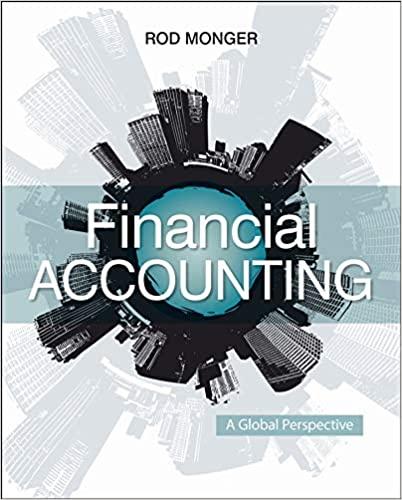Question
Which of the following is false regarding the impact of IT on the audit process? Auditors should evaluate the effectiveness of application controls before evaluating
Which of the following is false regarding the impact of IT on the audit process?
|
| Auditors should evaluate the effectiveness of application controls before evaluating general controls. | |
|
| Because auditors are responsible for obtaining an understanding of internal control, they must be knowledgeable about general and application controls, whether the clients use of IT is simple or complex. | |
|
| The systematic nature of automated application controls may allow auditors to reduce sample sizes used to test those controls in both an audit of financial statements and an audit of internal control over financial reporting. | |
|
| Client changes to application software affect the auditors reliance on automated controls. |
Which of the following is false regarding fraud?
|
| Fraudulent financial reporting is an intentional misstatement or omission of amounts or disclosures with the intent to deceive users. | |
|
| fraud describes any intentional deceit meant to deprive another person or party of their property or rights. | |
|
| Misappropriation of assets is normally perpetrated at higher levels of the organization hierarchy. | |
|
| Misappropriation of assets is fraud that involves theft of an entitys assets. |
Which of the following is false regarding the conditions for fraud?
|
| A common incentive for companies to manipulate financial statements is improvement in the companys financial prospects. | |
|
| In assessing risk factors, greater emphasis is placed on individual incentives and opportunities for theft. | |
|
| Three conditions for fraud arising from fraudulent financial reporting and misappropriations of assets are referred to as the fraud triangle. | |
|
| A turnover in accounting personnel or other deficiencies in accounting and information processes can create an opportunity for misstatement. |
Which of the following is false regarding assessment of fraud risk?
|
| the auditor has a responsibility to respond to fraud risk by planning and performing the audit to obtain reasonable assurance that material misstatements, whether due to errors or fraud, are detected. | |
|
| Auditing standards require the auditor to only make specific inquiries about fraud in high risk audit. | |
|
| Auditing standards require the audit team to conduct discussions to share insights from more experienced audit team members and to brainstorm ideas. | |
|
| Auditing standards require the auditor to evaluate whether fraud risk factors indicate incentives or pressures to perpetrate fraud, opportunities to carry out fraud, or attitudes or rationalizations used to justify a fraudulent action. |
Step by Step Solution
There are 3 Steps involved in it
Step: 1

Get Instant Access to Expert-Tailored Solutions
See step-by-step solutions with expert insights and AI powered tools for academic success
Step: 2

Step: 3

Ace Your Homework with AI
Get the answers you need in no time with our AI-driven, step-by-step assistance
Get Started


